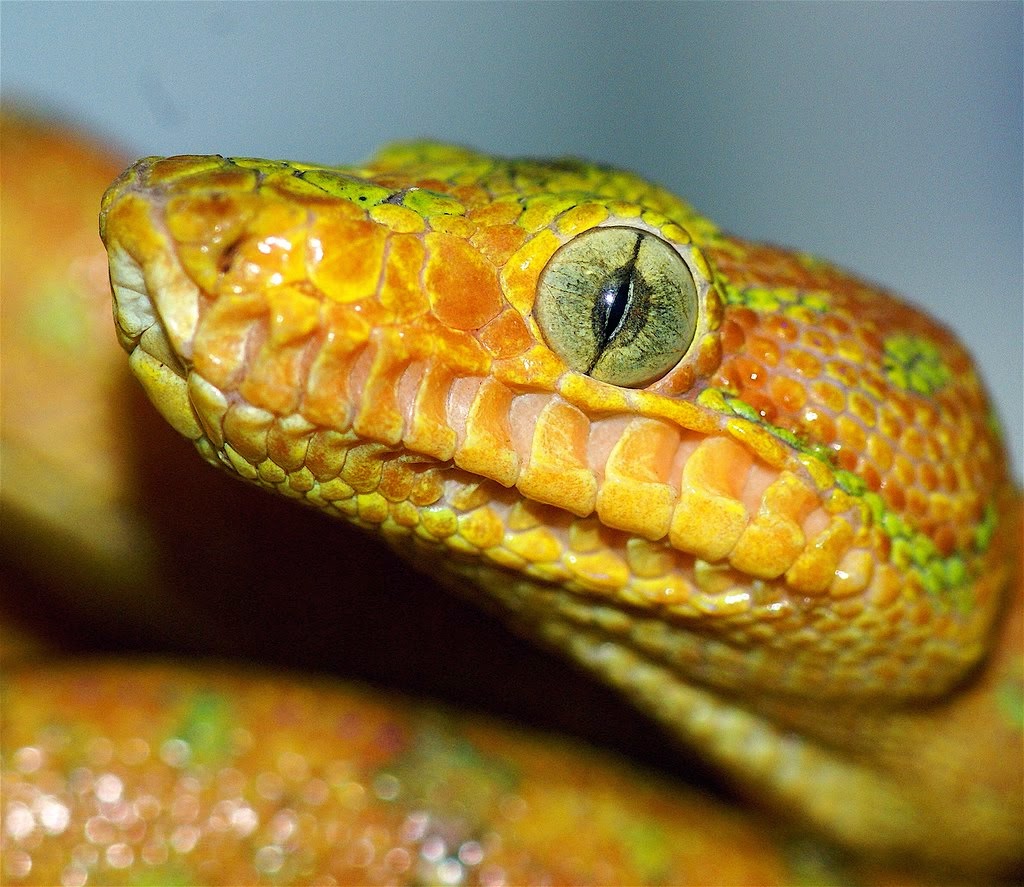Although this seems like a simple question, what are blind snakes has different answers. The blind snakes are not blind, as their eyes are only protected from ants by a thin layer of skin. Being cold-blooded reptiles, the blind snakes are able to detect any warm-blooded animal around them. They are non-venomous snakes with shiny and slippery scales. The question what are blind snakes is entitled, as sometimes those snakes can be mistaken with a dangerous poisonous snake.
shape of the body
The blind snakes can be recognized by their long heads, long round bodies and the short tail with only one row of plates. However, the best method to distinguish a poisonous snake from a harmful one is to look at their eyes. The venomous snakes have vertical pupils, while the other species have horizontal ones.
Feeding
The blind snakes hunt mainly in the night, and some of them are also great climbers, being able to hunt asleep birds in the trees. Usually, the blind snakes are small, so they would rather hunt termites and roaches, but some larger species can go for small birds and rats. The majority of them have the behavior of earthworms, hiding in the earth and running from fights with larger enemies. They are also able to use the termite galleries, so they can go from one place to another in a short period.
Mating

The blind snakes reproduce by laying eggs. The maximum length of a blind snake is 40 centimeters, and they can be found in South America and Southwest Asia. More than 300 different species were found, but it is believed that more species can be found in the depths of the Amazonian forest. The blind snakes are not so careful with their eggs, so only 10 % will hatch. The eggs are the perfect food for rats and small birds, and the blind snake is not so great at camouflaging a nest.
Distribution
The blind snake is an endangered specie in many parts of the world. It can be found practically everywhere, but the majority of habitats are compromised or destroyed. With the deforestation of the Amazonian forest, it is estimated that more than 100 species of blind snakes disappeared.

The blind snake likes to hunt after the rain when the insects come out of the ground. The blind snakes are not blind, but they are sensitive to light. Usually, they have a uniform black color, but the nuances might also be of green and yellow. They also have a slippery appearance that makes people to confuse them with worms. There are no venomous species of blind snakes, and they are also useful for gardens, preventing the termite’s invasions. The bigger species are useful for barns and shelters, as those blind snakes have a huge appetite for mice and locusts. In some parts of Asia, they are considered an exclusive food that can only be found in the 5-star restaurants.
More Posts:
Rat Snakes As Pets
Timber Rattlesnakeshape of the body
The blind snakes can be recognized by their long heads, long round bodies and the short tail with only one row of plates. However, the best method to distinguish a poisonous snake from a harmful one is to look at their eyes. The venomous snakes have vertical pupils, while the other species have horizontal ones.
Feeding
The blind snakes hunt mainly in the night, and some of them are also great climbers, being able to hunt asleep birds in the trees. Usually, the blind snakes are small, so they would rather hunt termites and roaches, but some larger species can go for small birds and rats. The majority of them have the behavior of earthworms, hiding in the earth and running from fights with larger enemies. They are also able to use the termite galleries, so they can go from one place to another in a short period.
Mating

The blind snakes reproduce by laying eggs. The maximum length of a blind snake is 40 centimeters, and they can be found in South America and Southwest Asia. More than 300 different species were found, but it is believed that more species can be found in the depths of the Amazonian forest. The blind snakes are not so careful with their eggs, so only 10 % will hatch. The eggs are the perfect food for rats and small birds, and the blind snake is not so great at camouflaging a nest.
Distribution
The blind snake is an endangered specie in many parts of the world. It can be found practically everywhere, but the majority of habitats are compromised or destroyed. With the deforestation of the Amazonian forest, it is estimated that more than 100 species of blind snakes disappeared.

The blind snake likes to hunt after the rain when the insects come out of the ground. The blind snakes are not blind, but they are sensitive to light. Usually, they have a uniform black color, but the nuances might also be of green and yellow. They also have a slippery appearance that makes people to confuse them with worms. There are no venomous species of blind snakes, and they are also useful for gardens, preventing the termite’s invasions. The bigger species are useful for barns and shelters, as those blind snakes have a huge appetite for mice and locusts. In some parts of Asia, they are considered an exclusive food that can only be found in the 5-star restaurants.
More Posts:
Rat Snakes As Pets
Lancehead Viper North America
How Big Can Garden Snakes Get
Eastern Timber Rattlesnake
Common Snakes In Kentucky
Are Garter Snakes Dangerous
Poisoning Snakes: Our Unjustified Fear
Burmese Python Interesting Animal Facts

No comments:
Post a Comment